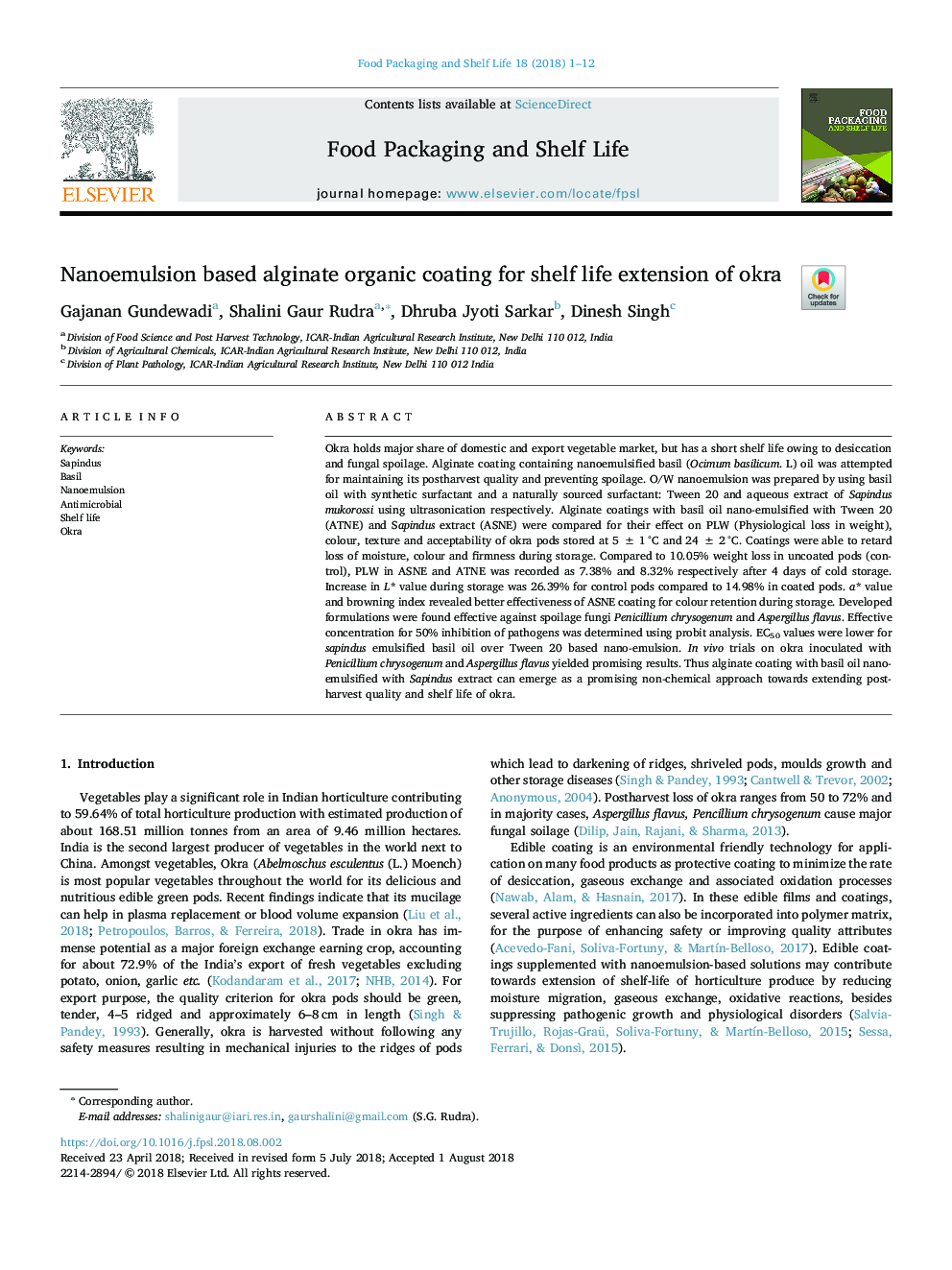| Article ID | Journal | Published Year | Pages | File Type |
|---|---|---|---|---|
| 6489035 | Food Packaging and Shelf Life | 2018 | 12 Pages |
Abstract
Okra holds major share of domestic and export vegetable market, but has a short shelf life owing to desiccation and fungal spoilage. Alginate coating containing nanoemulsified basil (Ocimum basilicum. L) oil was attempted for maintaining its postharvest quality and preventing spoilage. O/W nanoemulsion was prepared by using basil oil with synthetic surfactant and a naturally sourced surfactant: Tween 20 and aqueous extract of Sapindus mukorossi using ultrasonication respectively. Alginate coatings with basil oil nano-emulsified with Tween 20 (ATNE) and Sapindus extract (ASNE) were compared for their effect on PLW (Physiological loss in weight), colour, texture and acceptability of okra pods stored at 5â±â1â°C and 24â±â2â°C. Coatings were able to retard loss of moisture, colour and firmness during storage. Compared to 10.05% weight loss in uncoated pods (control), PLW in ASNE and ATNE was recorded as 7.38% and 8.32% respectively after 4 days of cold storage. Increase in L* value during storage was 26.39% for control pods compared to 14.98% in coated pods. a* value and browning index revealed better effectiveness of ASNE coating for colour retention during storage. Developed formulations were found effective against spoilage fungi Penicillium chrysogenum and Aspergillus flavus. Effective concentration for 50% inhibition of pathogens was determined using probit analysis. EC50 values were lower for sapindus emulsified basil oil over Tween 20 based nano-emulsion. In vivo trials on okra inoculated with Penicillium chrysogenum and Aspergillus flavus yielded promising results. Thus alginate coating with basil oil nano-emulsified with Sapindus extract can emerge as a promising non-chemical approach towards extending postharvest quality and shelf life of okra.
Related Topics
Physical Sciences and Engineering
Chemical Engineering
Bioengineering
Authors
Gajanan Gundewadi, Shalini Gaur Rudra, Dhruba Jyoti Sarkar, Dinesh Singh,
